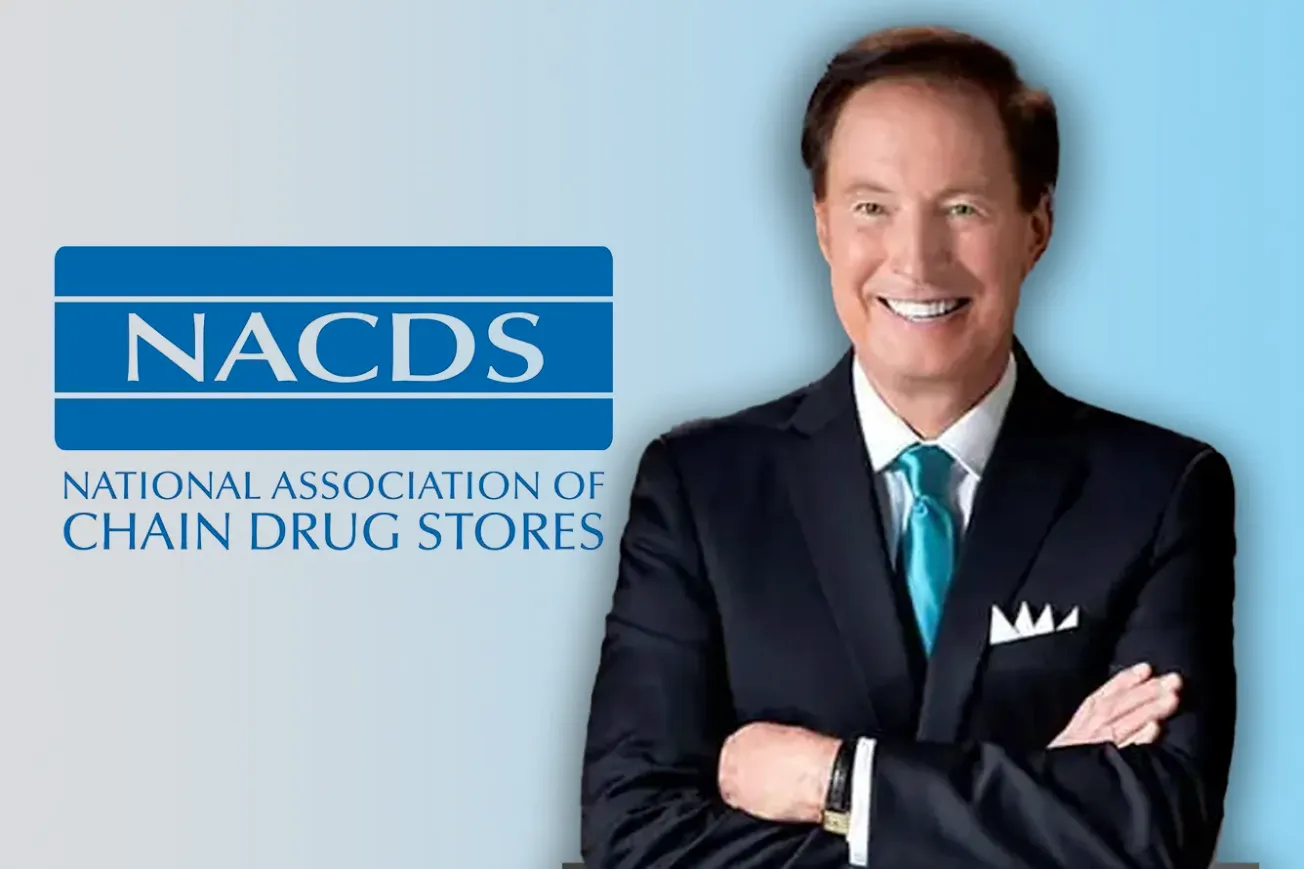By Peter Matz, Director of Food, Pharmacy and
Health Policy at FMI – The Food Industry Association
While the health care landscape continues to evolve rapidly, retail pharmacies remain at the forefront of patient care. Supermarket pharmacies, in particular, play a vital role as accessible and trusted health care providers within their communities. As we look toward 2025, FMI – The Food Industry Association is committed to addressing the challenges and opportunities that lie ahead for our pharmacy members.

In an era marked by rising health care costs, growing regulatory complexity and shifting patient expectations, supermarket pharmacies are uniquely positioned to bridge gaps in health care access. Whether it’s administering vaccines and point-of-care testing, dispensing medications, or offering personalized counseling, pharmacies provide indispensable services to millions of Americans every day.
FMI recognizes that ensuring supermarket pharmacies are sustainable and empowered to deliver on their full potential requires proactive advocacy and collaboration. Below, we explore key issues and emerging trends shaping the future of pharmacy, along with FMI’s advocacy efforts to support our members in this ever-changing environment.
PBM reform: a critical need for pharmacy sustainability
Pharmacy benefit managers wield disproportionate market power and influence in nearly every facet of the nation’s prescription drug system, inflating Americans’ prescription drug costs, forcing pharmacy closures and blocking access to pharmacies of choice. For FMI and its member companies, addressing the egregious practices of PBMs remains the top pharmacy priority. There is an immediate need to enact comprehensive PBM reform measures to reduce Americans’ prescription drug costs and protect pharmacy businesses across the United States.
The harmful and aggressive tactics employed by PBMs are threatening the sustainability of pharmacies and undermining the broader health care system. The Centers for Medicare and Medicaid Services (CMS) recently expressed concern in a letter to PBMs and plans, stating: “We are hearing an increasing number of concerns about certain practices by some plans and [PBMs] that threaten the sustainability of many pharmacies, impede access to care and put increased burden on health care providers.”
CMS is not alone in sounding the alarm. PBMs are under heightened scrutiny on multiple fronts, reflecting widespread concern about their unchecked power. The Federal Trade Commission recently released a much anticipated interim report from its ongoing investigation into PBM practices, underscoring the extraordinary influence PBMs exert over drug prices and access. The report, titled “The Powerful Middlemen Inflating Drug Costs and Squeezing Main Street Pharmacies,” validates many of the concerns FMI has repeatedly raised with policy makers, including FTC staff. Similarly, the House Oversight Committee has held multiple hearings where PBM executives faced bipartisan criticism, culminating in a damning report calling for urgent reforms. Adding to the pressure, major publications like The New York Times and The Wall Street Journal have published in-depth reports on the detrimental impact of PBMs, including their role in driving the closure of local pharmacies and restricting patient access to care.
Consistent with these findings, FMI’s members report that PBMs are reimbursing pharmacies below their cost to fill prescriptions — especially in Medicare — pushing pharmacy businesses to the brink. A recent FMI survey underscores the devastating impact of PBM practices on supermarket pharmacies:
• 81% of FMI member pharmacies filled more prescriptions in 2023 than in 2022, yet nearly all (80%) reported reduced profitability compared to the previous year.
• This financial strain has prevented many from opening new locations and forced others to close some or all of their existing locations. In fact, 37% of FMI members have closed pharmacies in the past two years, and 43% report being at risk of closures over the next two years.
• Many have also had to reduce hours and staff to offset PBM-related losses, further limiting patient access to critical services and underscoring the urgent need for action.
The result of these unsustainable practices is the proliferation of “pharmacy deserts” in rural and underserved communities, where the local pharmacy may be the only health care provider for miles. These closures limit access to care, reduce competition and disproportionately affect vulnerable populations, undermining the goals of policy makers to improve health equity and affordability.
PBMs’ anti-competitive practices also undermine the role of pharmacists — some of the most accessible and highly trusted health care professionals. Pharmacists provide critical services that patients rely on to stay healthy and informed. When pharmacies close due to unsustainable reimbursement rates, patients lose access to these essential services.
FMI has been a leading champion for PBM reform measures that prevent exploitative practices, ensure fair and timely pharmacy reimbursement, and increase transparency to ensure that savings are passed on to patients at the pharmacy counter rather than pocketed by PBMs. While progress was made in the previous Congress, comprehensive PBM reform remains unfinished business, and we anticipate renewed interest in advancing these critical measures in 2025. As FMI looks forward to working with the incoming Trump administration, we will continue to collaborate with policy makers to advance bipartisan PBM reforms that lower costs, support pharmacies and reduce barriers to patient access. During his first term, President Trump prioritized reining in PBM abuses, and there is a clear opportunity to build on that foundation.
The harmful practices of PBMs are not just an industry issue — they are a public health crisis. The time for action is now to ensure that pharmacies remain viable, accessible and equipped to serve their communities. FMI will not stop fighting to protect our members and the patients who rely on them.
FDA’s DSCSA decision: What it means for retail pharmacies
The Food and Drug Administration’s recent decision to exempt retail pharmacies from the enhanced drug distribution security (EDDS) requirements under the Drug Supply Chain Security Act (DSCSA) represents a critical win for FMI pharmacy members and the broader retail pharmacy community. This decision, which includes a phased implementation approach for stakeholders, underscores the importance of advocacy in ensuring practical implementation of regulations.
The enhanced requirements under the DSCSA, which were originally scheduled to take effect on November 27, 2024, aim to improve drug traceability and security across the supply chain. While FMI fully supports the goals of the DSCSA, we were concerned about the ability of retail pharmacies to comply within the original timeline, especially as other upstream supply chain partners were still finalizing their own compliance systems.
The FDA’s decision grants retail pharmacies additional time and flexibility to meet compliance standards without risking disruptions to patient care. Under the phased timeline:
• Manufacturers and repackagers must comply by May 27, 2025.
• Wholesale distributors have until August 27, 2025, to comply.
• Pharmacies with 26 or more full-time employees have until November 27, 2025, to meet the requirements.
This phased timeline ensures that pharmacies can focus on refining internal processes, conducting critical testing and training staff — all while their trading partners work to ensure readiness. FMI is pleased that the FDA adopted a phased approach that strikes the right balance between advancing drug security and ensuring pharmacies can continue to provide uninterrupted care.
Supermarket pharmacy services expand access to care
As the health care system faces mounting pressure, retail pharmacies are stepping up to fill critical gaps in care. The pandemic demonstrated the value of supermarket pharmacies as trusted access points for vaccines, testing and health education. Moving forward, pharmacies are poised to play an even greater role in addressing population health needs.
With their convenient locations, trusted pharmacists, and connections to food and nutrition resources, supermarket pharmacies are uniquely positioned to lead the integration of health and wellness services into retail settings. FMI is advocating for policies that empower pharmacists to practice at the top of their license, enabling them to administer a wider range of vaccines and point-of-care tests; provide medication therapy management for chronic conditions like diabetes and hypertension; and collaborate with other health care providers to offer comprehensive care. By supporting policies that expand pharmacy services, we can reduce health disparities, improve patient outcomes and lower overall health care costs.
Looking ahead
As we approach 2025, FMI remains committed to supporting supermarket pharmacies as they adapt to an evolving health care environment. Whether advocating for PBM reform, expanded pharmacy services or other pharmacy priorities, our efforts are focused on improving access to care and patient health outcomes while ensuring that pharmacies can continue to serve their communities.
The challenges facing retail pharmacies are significant — but so are the opportunities. By working together with state and federal policy makers, we can build a pharmacy sector that is resilient, innovative, and responsive to the needs of patients and communities. FMI is proud of our efforts to support supermarket pharmacies and looks forward to continuing our advocacy on behalf of our members in 2025 and beyond.









